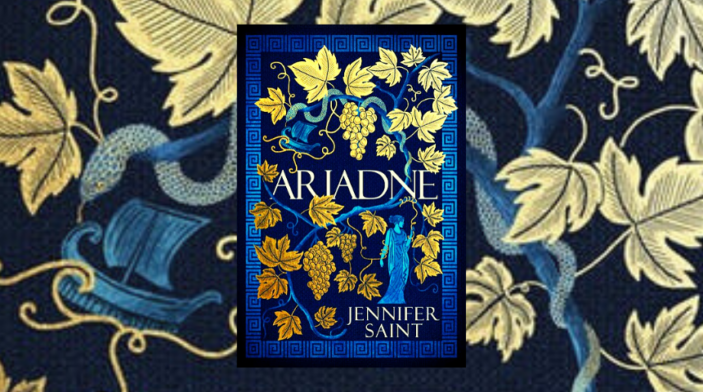
Daughter of cruel King Minos and sister to the Minotaur, Ariadne lives a life governed by the fear her monstrous brother instils into the enemies of Crete. Athens, in particular, suffers, forced to send regular sacrifices for the Minotaur, exchanging some of its young people for peace with the island nation. But one year, a hero stands amongst them – Theseus, son of the Athenian king. He has volunteered for the journey, intending to kill the Minotaur, and end the barbaric sacrifices once and for all. And Ariadne is willing to help him.
But Theseus is far from the hero of legend, and once the Minotaur is dead, Ariadne’s purpose is served. After all, she betrayed her family – what prince in his right mind would have her now? Abandoning her on the island of Naxos, Theseus leaves her for dead. But when the island’s owner returns, Ariadne finds a whole new life unfolding before her.
It probably goes without saying that Ariadne will appeal to the legions of Madeline Miller fans out there. There’s certainly unavoidable parallels with Circe, as a descendant of Helios finds herself cast out on a lonely island, crossing paths with gods and heroes, but author Jennifer Saint‘s work is also capable of standing firmly on its own.
Ariadne’s growth is measured and well explored, and the writing is simple, effective, and immersive. Walking a curious line between a rather blunt, classical style, and something a little more flowery and, occasionally, quite visceral, it can feel a little stilted, but the story itself is engaging enough to stop things from slowing down.
Though it’s titled Ariadne, much of the book also focuses on her tragic sister, Phaedra. Traded in exchange for peace with Athens, she marries the hero that not so heroically abandoned her sister to die, and finds that the life of excitement she dreamt of as a child isn’t quite accurate.
I do wonder if Saint couldn’t quite flesh out either story enough to have a standalone that focused on the one sister – Ariadne, after all, spends much of her time on an isolated island, raising a family, and letting the world pass her by. Time becomes hard to keep track of as the story jumps between the two, and the end result is that the finale of Phaedra’s tale feels rushed. Given the choices Saint made in the telling of it, that’s really a shame.
There’s a hopelessness to Ariadne and Phaedra’s stories that our lead and her contemporary author can’t avoid. It’s the Ancient Greek way after all. For anyone not already familiar with the Cretan princesses; they’re (mostly) doomed from the start and it’s powerful men (gods or otherwise) who are to blame.
It’s timely, and it’s also absolutely true, but – and this may be a personal preference – but as the trend for retelling classical myths continues, it feels a little exhausting to have waded through Ariadne and Phaedra’s woes, only for the villains to triumph in the end. We are, after all, saturated with stories like this – both in fiction and in real life.
That said, Ariadne remains an engaging read, and Saint makes fine use of the malleability of mythology to change perceptions of hero, god, and victim. Whether it would have benefited from extra space for Phaedra, or, alternatively, a more streamlined focus is up for debate, but Ariadne herself carries the bulk of the novel with the expected dignity of a Minoan princess – beleaguered but battling on.
![]()
![]()
![]()
![]()
![]()
THREE AND A HALF STARS (OUT OF FIVE)
Jennifer Saint’s Ariadne is out now, published by Hachette. Grab yourself a copy from Booktopia HERE
